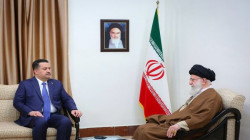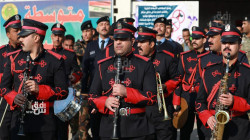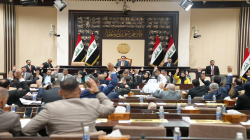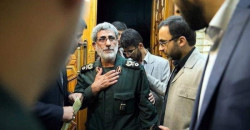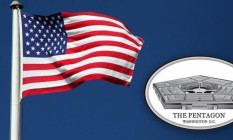Shadow ballot: Iraq's November geopolitical chess game
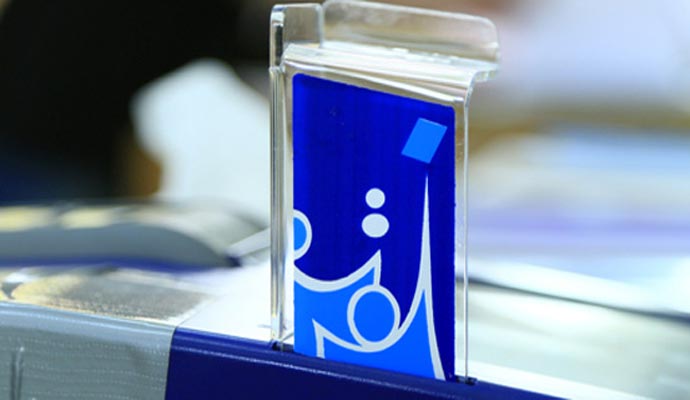
Shafaq News/ The upcoming Iraqi parliamentary elections, slated for November 11, 2025, are shaping up to be more than a domestic political contest. In the background looms the persistent shadow of a high-stakes geopolitical tug-of-war between the United States and Iran. Both powers—deeply entrenched in Iraq's political and security matrix—see the vote as a critical inflection point to either reinforce or recalibrate their influence over Baghdad’s direction.
With a fragile security environment, a fatigued electorate, and a fragmented political elite, the elections risk becoming a flashpoint for renewed contestation rather than a path toward institutional stability. The future of Iraq’s sovereignty, the fate of armed non-state actors, and the viability of democratic governance are all on the ballot—albeit indirectly.
Iraq: Proxy Chessboard Since 2003
Since the 2003 US invasion, Iraq has served as a theater for external influence, with Tehran and Washington emerging as primary patrons to rival factions. While American policymakers still view Iraq through the prism of counterterrorism and regional balance, Iran sees its western neighbor as a strategic buffer zone—a vital node in the "Axis of Resistance" stretching from Tehran to Beirut.
The upcoming elections offer a moment of recalibration. For the US, it’s an opportunity to empower centrist, nationalist forces and reduce the footprint of Iran-aligned armed factions. For Iran, the priority lies in preserving influence through political alliances, faction integration, and economic entrenchment.
Both strategies are playing out simultaneously, often through competing electoral alliances, legal maneuvers, and behind-the-scenes diplomacy.
Tehran’s Quiet Manoeuvring
Iran enters these elections with its traditional toolbox: a network of Shiite parties, the Popular Mobilization Forces (PMF), and quiet diplomacy through its consulate system and Quds Force operatives. Tehran’s influence is most deeply embedded within the Shiite Coordination Framework—a bloc characterized by its opposition to the Patriotic Shiite Movement led by Muqtada al-Sadr.
The CF functions as a significant political entity, involves negotiating collectively with the Iraqi government on diverse issues and wielding influence as a potential "blocking third" in parliament, capable of obstructing government formation if its interests are disregarded.
The main CF parties are the State of Law, led by Nouri Al-Maliki; Fatah Alliance, led by Hadi al-Ameri; Asaib Ahl al-haq led by Qais Al-Khazali, and Al-Hikma Movement, led by Ammar Al-Hakim.
Despite growing public fatigue with armed actors, these parties remain electorally viable due to well-established patronage networks and control over local security dynamics in southern and central Iraq. However, Tehran has adopted a more measured tone in recent months, reportedly encouraging its allies to scale back anti-American rhetoric and emphasize state-building and economic recovery in campaign messaging.
"Iran is playing a longer game," said a senior Western diplomat based in Baghdad. "They know that raw militancy is no longer sellable to the Iraqi public, especially post-October 2019 protests. Their bet is on institutionalizing influence, not flaunting it."
Iranian officials have also engaged in shuttle diplomacy, discreetly meeting with Kurdish and Sunni leaders to ensure post-election alliances do not marginalize Tehran’s axis.
US Strategy: Minimalist but Targeted
The Trump administration’s Iraq policy has largely revolved around containment—of Iranian influence, of renewed ISIS activity, and of political instability. Unlike earlier eras of direct state-building, today’s US approach is minimalist but strategic. It supports Iraq’s Independent High Electoral Commission (IHEC) and engages in quiet support for security sector reform.
American diplomats have also been actively encouraging Shiite cleric Muqtada al-Sadr and Prime Minister Mohammed Shia al-Sudani to maintain a neutral stance on regional conflicts, particularly regarding the Gaza war and Iranian-Israeli tensions.
US officials see these elections as a chance to empower moderate factions within al-Sudani’s government, many of whom have signaled a willingness to gradually bring all armed groups under state control.
A senior US official told Al-Monitor on condition of anonymity, "We are not trying to pick winners and losers. We are focused on process integrity and on ensuring the outcome doesn’t escalate violence or empower spoilers."
Still, US military presence remains a sensitive topic. Although combat forces have been reduced, American bases continue to draw occasional rocket fire from Iran-linked groups, who may ramp up attacks if the electoral outcome is perceived as unfavorable to Tehran.
Fragmentation Within Shiite Politics
The Shiite political landscape is undergoing profound fragmentation. While the Coordination Framework remains the most cohesive bloc, rifts have widened between more pragmatic wings—such as Hadi al-Amiri’s Badr Organization—and ideological hardliners like Qais al-Khazali’s Asa’ib Ahl al-Haq. These tensions are mirrored in the broader competition for control over the PMF’s future.
Muqtada al-Sadr’s ambiguous political posture adds further uncertainty. Though he withdrew from formal politics following the 2022 crisis, his grassroots movement remains potent. Whether he calls for a boycott, passive endorsement, or direct engagement could shift voter turnout significantly in the South.
Kurdish and Sunni Roles as Kingmakers
In the north and west, the electoral landscape remains equally fluid. Kurdish politics are fractured between the KDP and PUK, with Iranian and Turkish influences pulling each side in divergent directions. Meanwhile, Sunni factions—led by Mohammed al-Halbousi and Khamis al-Khanjar—are recalibrating their alliances in anticipation of post-election coalition bargaining.
Both Tehran and Washington have quietly courted Sunni leaders, recognizing their kingmaker potential in forming the next government. However, many Sunni voters remain disillusioned, skeptical that either foreign patron can meaningfully address their economic or security grievances.
Security Concerns and Election Integrity
The election will unfold under a heavy security footprint. IHEC and the Iraqi Security Forces are preparing contingency plans for armed violence, assassination attempts, and cyber manipulation. Given the experiences of 2021 and 2018, voter turnout is expected to be low, especially in urban centers where trust in political parties has cratered.
Observers worry that contested results could trigger another wave of unrest. "There is a real danger of localized violence if any group feels disenfranchised," said a researcher at the Iraqi Institute for Strategic Studies. "The risk is not national collapse, but slow-motion fragmentation."
Two Paths After the Vote
If nationalist and moderate Shiite forces secure a workable majority, and Kurdish-Sunni blocs agree to power-sharing, Iraq could enter a phase of cautious stability. The PMF may be incrementally absorbed into state structures, and both the US and Iran might tolerate a status quo.
If the elections result in a deadlock or perceived marginalization of key players, armed group attacks and popular protests could resume. In this case, both Tehran and Washington may double down on hardline proxies, risking further destabilization.
The November vote, then, is more than a national referendum—it is a geopolitical litmus test. Whether Iraq emerges with a stronger central state or sinks deeper into fragmented sovereignty will depend not only on ballots cast but also on the maneuverings in Tehran, Washington, and the corridors of Baghdad’s Green Zone.
